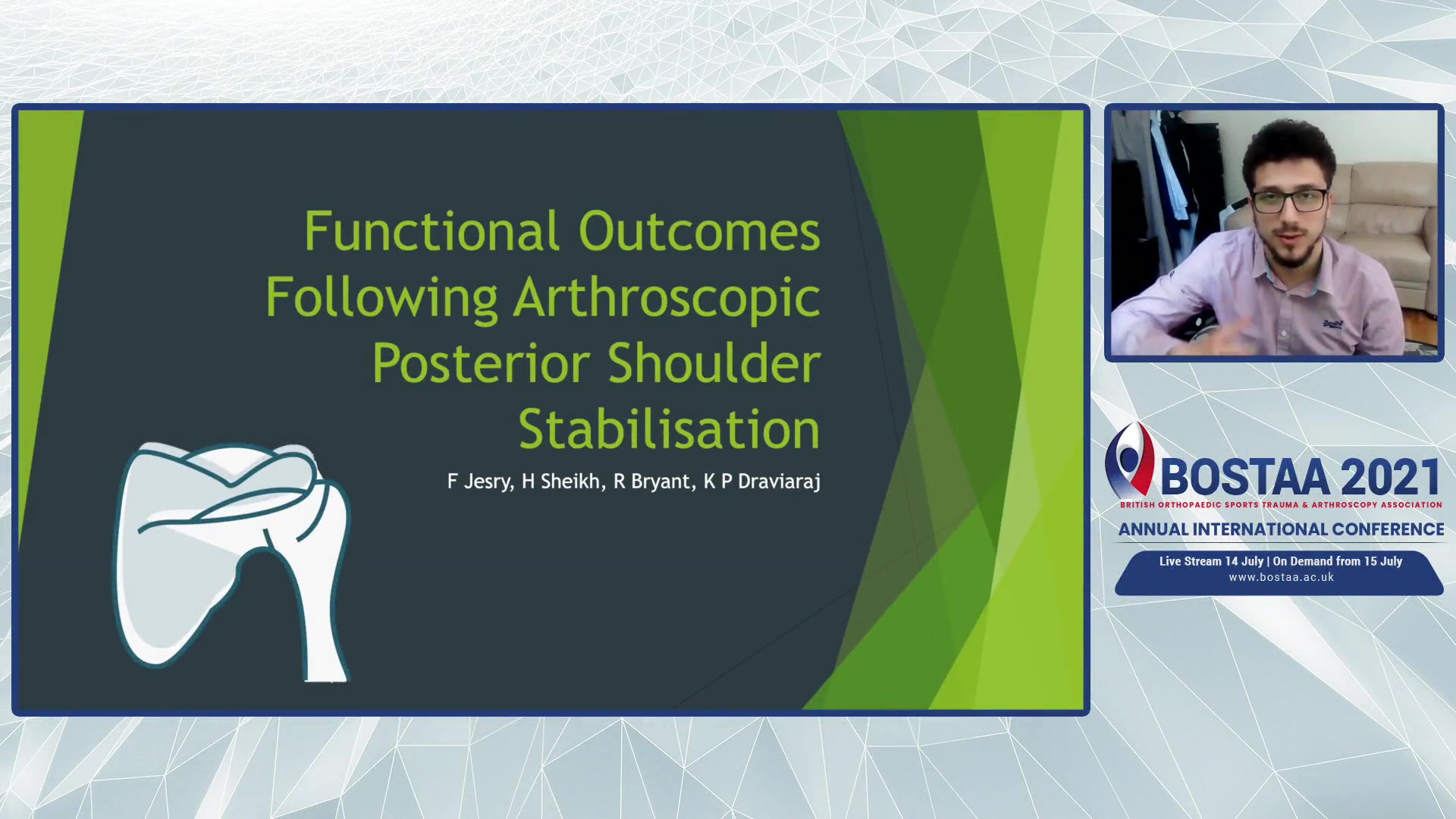Please login to view this media

- Talk
- 14/07/2021
- UK
Functional Outcomes following Arthroscopic Posterior Shoulder Stabilisation
Description
The presentation, delivered by Fidel Jesry, a fourth-year medical student, covers the investigation of functional outcomes after posterior shoulder stabilization surgery. Jesry acknowledges his supervisors and explains that the topic was chosen due to the rarity of posterior shoulder instability, which occurs in 2% to 5% of unstable shoulders and is often overlooked in A&E departments. The main goal of the project is to evaluate functional results and complications post-surgery.
A literature review identified 16 relevant studies focusing on metrics like return to daily activities, Walch-Duplay, VAS pain scores, and Rowe scores, assessed both pre- and post-operation. Jesry highlights the limited use of the Oxford Shoulder Instability Score with only one existing study having used it. In his methods, he describes the retrospective approach taken in a single center, excluding multidirectional instability cases. The data collection involved telephone follow-ups for the Oxford Shoulder Score due to COVID restrictions.
Key endpoints included the absence of recurrent instability and patient satisfaction, with the Oxford Shoulder Score assessing previous symptoms. Surgical techniques involved three portals and multiple anchors for stabilization. Jesry reports on a cohort of 15 patients, primarily male, showing a high mean Oxford score of 44 and only one case of recurrent instability.
The results indicate a good rate of returning to pre-injury levels and high patient satisfaction. Comparisons with prior studies show robust follow-up and positive outcomes. He discusses the strengths and limitations of the study, acknowledging the challenges of smaller sample sizes and the absence of pre-operative scores. In conclusion, Jesry emphasizes the procedure's reliability and success, with most patients reporting satisfaction and no symptom recurrence, inviting questions from the audience.